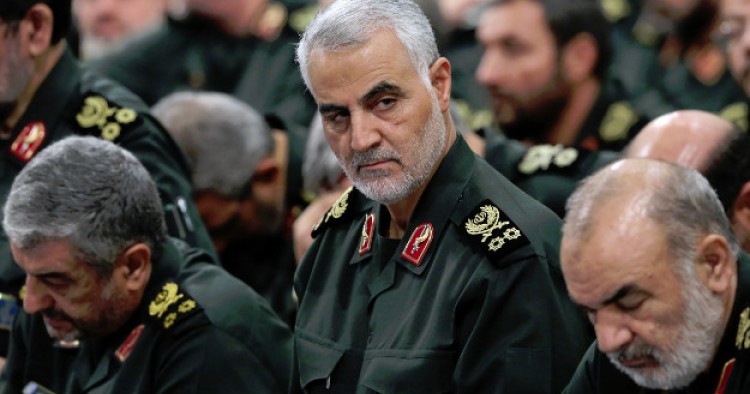Iran’s Quds Force commander Qassem Soleimani arrived in Moscow yesterday to meet with high-ranking Russian officials, the U.S. media reports. According to Fox News, the Iranian general arrived at Vnukovo airport outside Moscow Wednesday and will remain in Russia for a few days. The report adds that Soleimani is visiting Moscow to “express his displeasure with the Russian government over their relationship with Saudi Arabia and other Arab states, mainly regarding weapons deals and strengthening economic ties.” But at a U.S. Congressional hearing on Iran this morning, House Foreign Affairs Committee Ed Royce speculated that Soleimani might have gone to Moscow for potential arms deals, including components of ballistic missiles.
Comment: According to media reports, this is Soleimani’s third trip to Russia in the past two years. Just days after Iran signed the nuclear agreement with world powers in July 2015, Soleimani held meetings with Russian President Vladimir Putin and Defense Minister Sergei Shoigu in Moscow.
As U.S. lawmakers noted at today’s hearing on Iran, Soleimani’s Moscow trip also violates the United Nations resolutions that forbid the Quds Force commander from leaving his country. Once a shadowy figure, Soleimani now regularly visits front lines in Syria and Iraq and the Iranian-state media often publishes his photographs with Iran-backed Shiite militiamen in the two war zones. Last December, for example, he was spotted touring the war-ravaged Syrian city of Aleppo.
In October, the Obama administration confirmed that Soleimani’s trips to Syria and Iraq violated U.N. resolutions, but Washington and the U.N. have yet to take any serious measures to force Soleimani to abide by the international travel ban.
As the head of the Islamic Revolution Guards Corps Quds Force, Soleimani has played an active role in undermining U.S. missions in Iraq and Afghanistan in the past decade and a half by supporting terrorist and militia groups. And since 2011, he has been instrumental in mobilizing Iraqi, Lebanese, Afghan and Pakistani Shiite militias to crush rebel forces fighting the ruthless regime of Bashar al-Assad in Syria. During his July 2015 trip, it was Soleimani who convinced the Kremlin to militarily intervene in Syria to save Assad – a development that rapidly changed the balance of power in Assad's favor and resulted in immense human suffering.
The Middle East Institute (MEI) is an independent, non-partisan, non-for-profit, educational organization. It does not engage in advocacy and its scholars’ opinions are their own. MEI welcomes financial donations, but retains sole editorial control over its work and its publications reflect only the authors’ views. For a listing of MEI donors, please click here.













